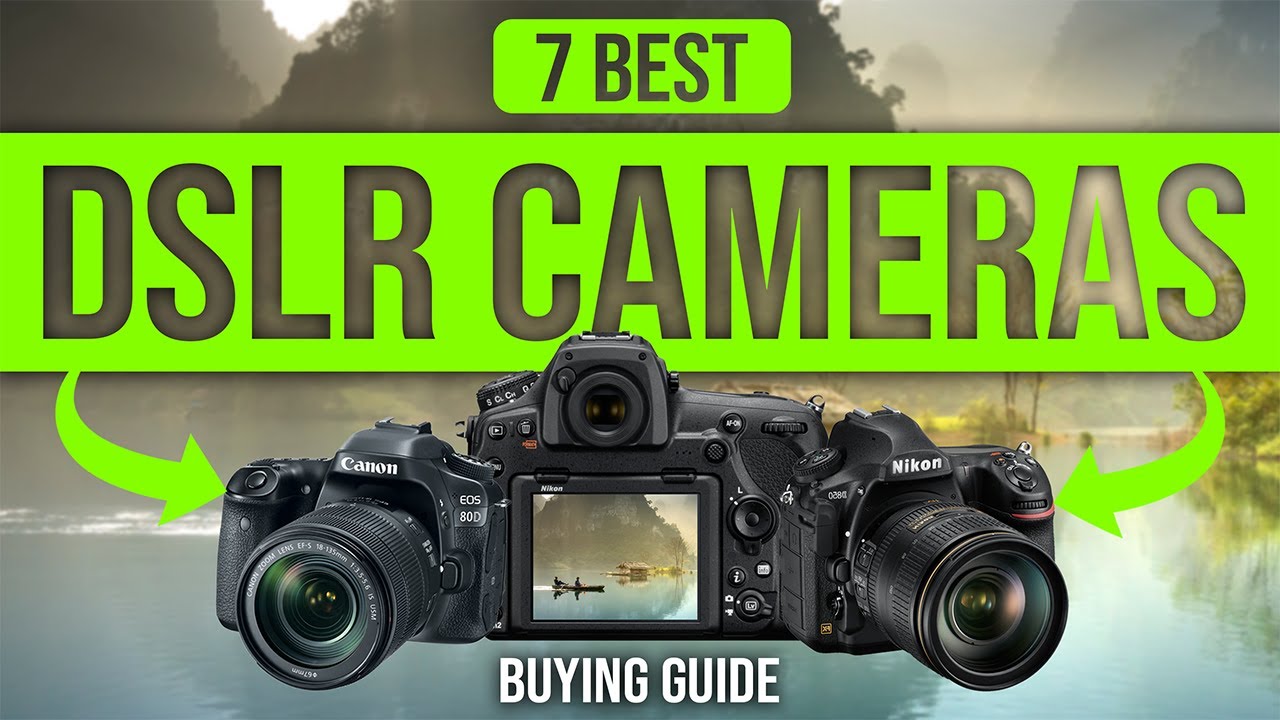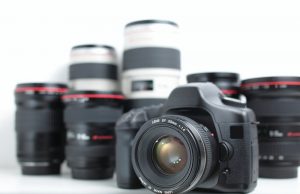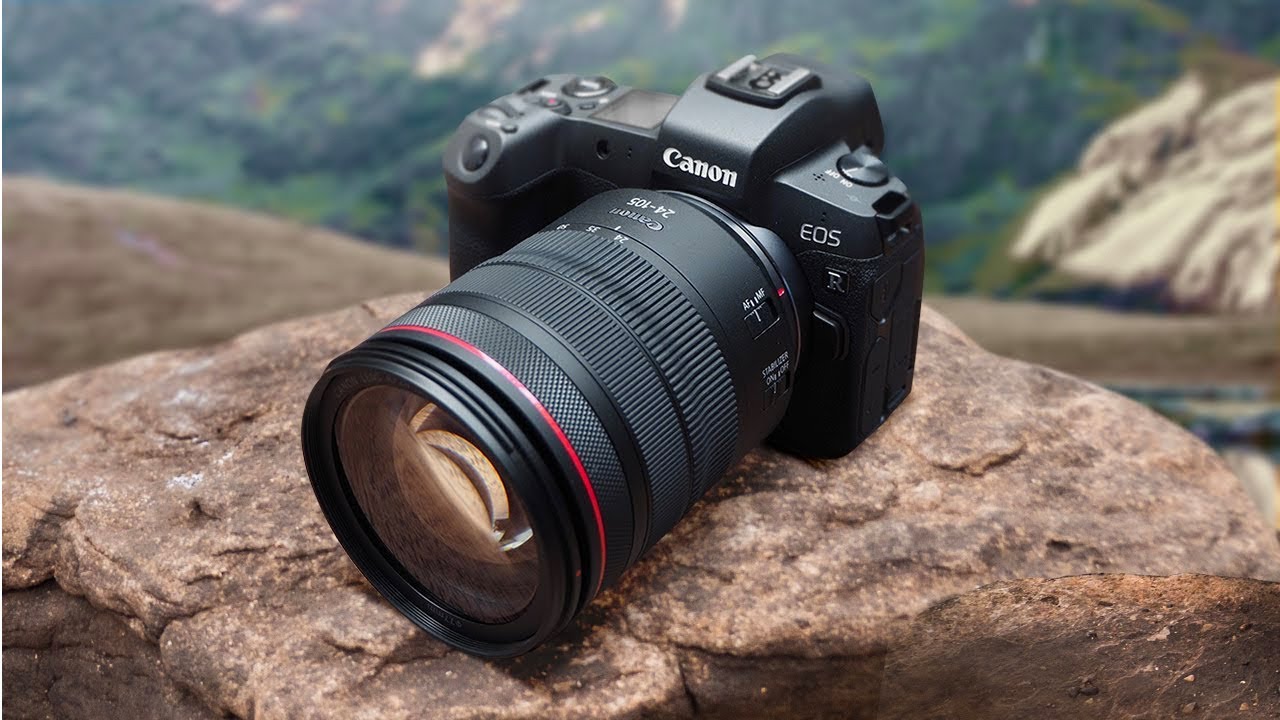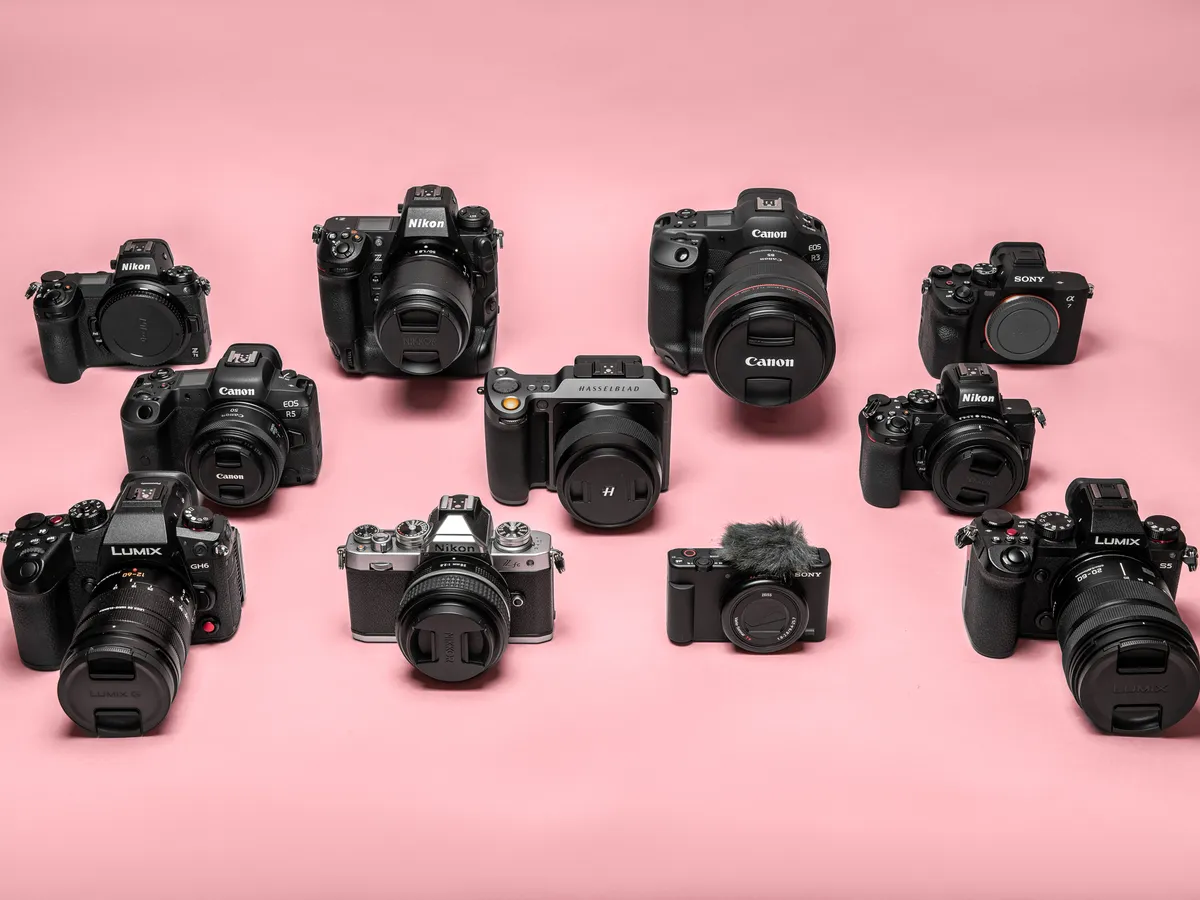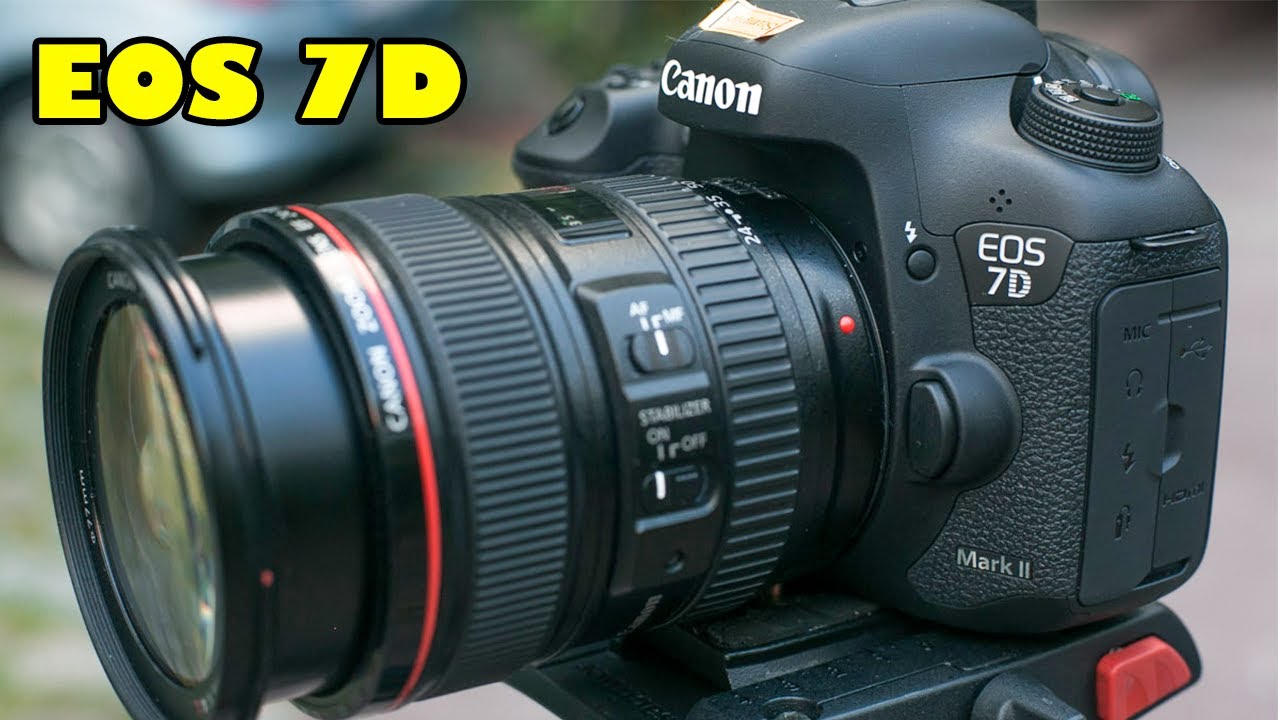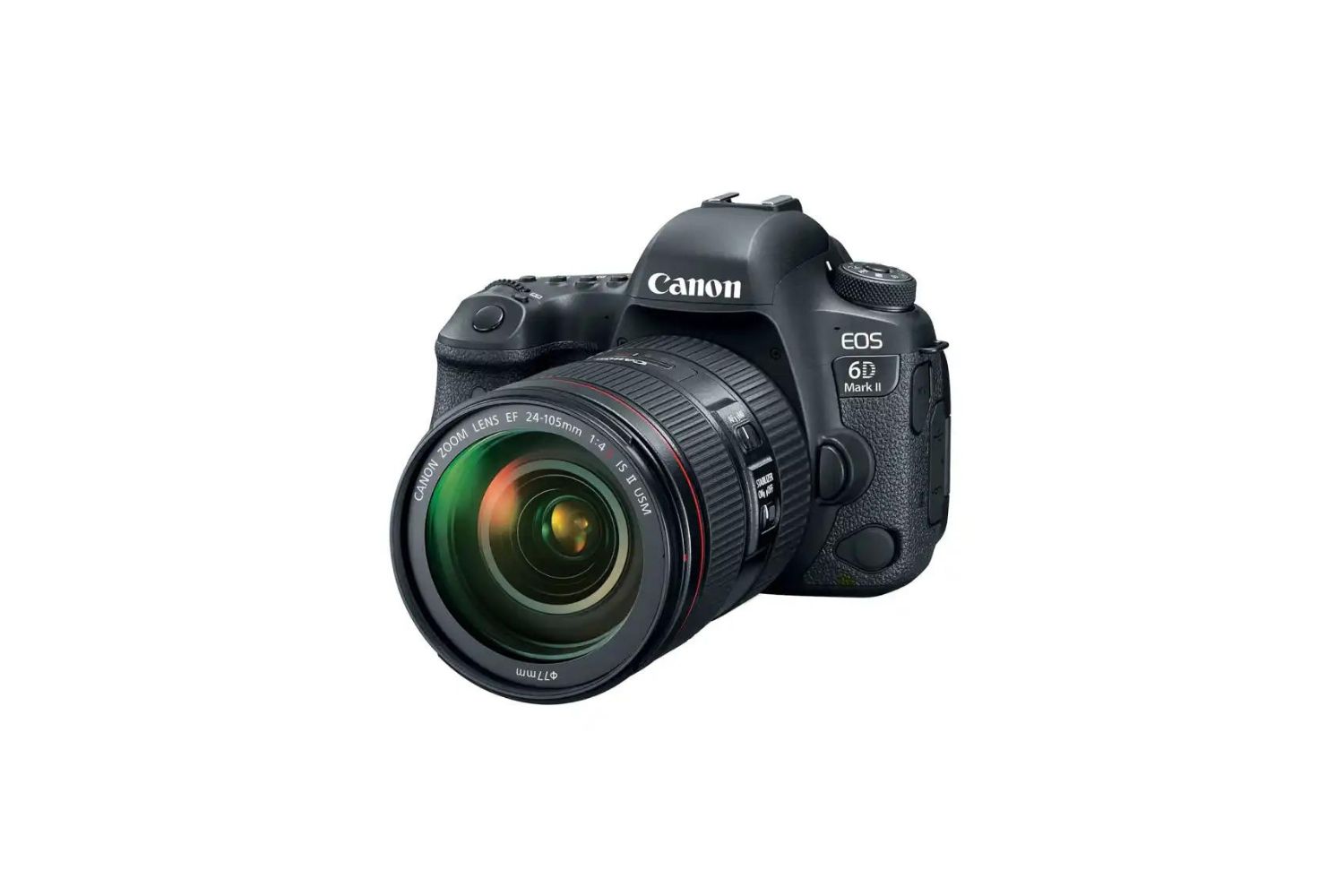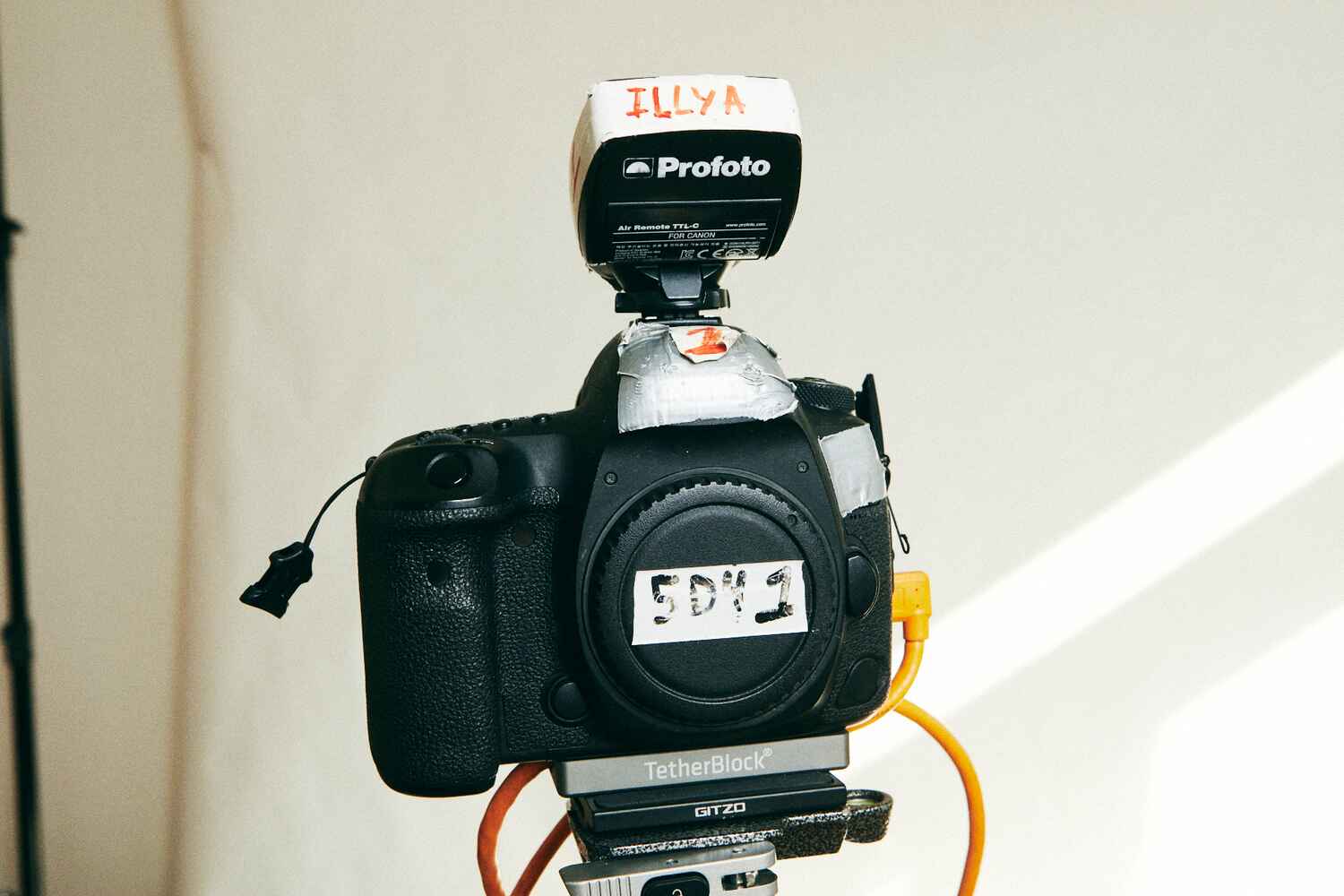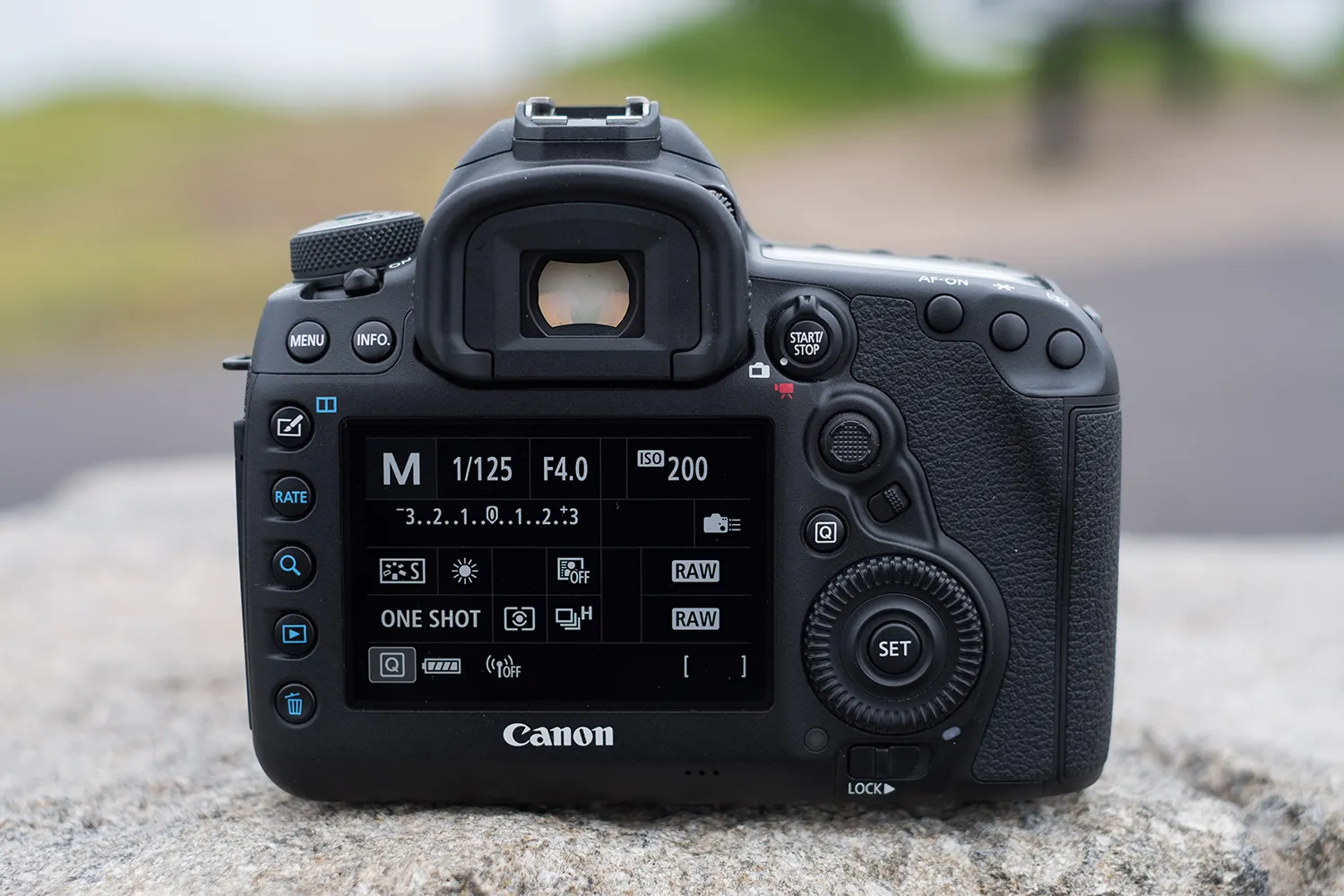Introduction:
When it comes to capturing stunning photographs with the Canon EOS 1D Mark II Digital SLR Camera, one of the most important factors to consider is the choice of lenses. Lenses play a vital role in determining the overall image quality, sharpness, and versatility of your shots. With a wide range of lens options available, it can be overwhelming to decide which lenses are compatible with the Canon EOS 1D Mark II.
Canon, being a renowned camera manufacturer, offers an extensive lineup of lenses specially designed for their EOS cameras. These lenses are referred to as Canon EF lenses. In addition to Canon EF lenses, there are also Canon EF-S lenses, which are specifically designed for cameras with APS-C sized sensors, such as the Canon EOS 1D Mark II.
However, it’s not just limited to Canon lenses. There are also third-party lenses from reputable manufacturers like Sigma, Tamron, and Zeiss that are compatible with the Canon EOS 1D Mark II. These lenses offer a wide range of options in terms of focal lengths, apertures, and special features, allowing you to explore different photographic styles and genres.
But what exactly is the compatibility of these lenses with the Canon EOS 1D Mark II? In this article, we will delve into the various types of lenses that can be used with the Canon EOS 1D Mark II and discuss the considerations to keep in mind when selecting the right lens for your needs.
Canon EF Lenses:
Canon EF lenses are specifically designed for Canon’s full-frame DSLR cameras, including the Canon EOS 1D Mark II. These lenses are known for their high optical quality, superior build, and extensive range of focal lengths and apertures. With Canon EF lenses, you have access to a wide variety of options to suit different photography genres, whether it’s landscape, portrait, or wildlife photography.
Canon EF lenses come in multiple categories. Standard zoom lenses, such as the Canon EF 24-70mm f/2.8L II USM, offer a versatile focal length range for everyday shooting. These lenses are perfect for capturing a wide range of subjects, from landscapes to portraits.
Telephoto lenses, like the Canon EF 70-200mm f/2.8L IS III USM, are ideal for capturing distant subjects with remarkable clarity and detail. These lenses are highly popular among wildlife and sports photographers who need to bring the action closer.
For those who enjoy wide-angle photography, Canon’s lineup offers lenses like the Canon EF 16-35mm f/4L IS USM. These lenses provide a wider field of view, making them perfect for capturing expansive landscapes or architectural shots.
If macro photography is your passion, Canon EF macro lenses like the Canon EF 100mm f/2.8L Macro IS USM deliver exceptional close-up capabilities. These lenses allow you to capture intricate details with stunning clarity, making them a favorite among macro enthusiasts.
Canon’s prime lenses, such as the Canon EF 50mm f/1.4 USM, offer a fixed focal length, providing excellent image quality and low-light capabilities. These lenses are favored for their sharpness and wide aperture, allowing for beautiful bokeh and shallow depth of field effects.
It’s worth mentioning that Canon also offers specialized lenses, like tilt-shift lenses and fisheye lenses, which allow for creative and unique perspectives.
With Canon EF lenses, you can rely on the exceptional image quality, autofocus performance, and durability that Canon is known for. These lenses are engineered to meet the demands of professional photographers and enthusiasts alike, ensuring that you can capture stunning images with the Canon EOS 1D Mark II.
Canon EF-S Lenses:
Canon EF-S lenses are specifically designed for Canon APS-C sensor cameras, including the Canon EOS 1D Mark II. These lenses offer a more affordable option compared to Canon EF lenses, while still providing excellent image quality and performance. If you’re a Canon EOS 1D Mark II user, it’s important to note that while EF-S lenses are compatible with your camera, they cannot be used on full-frame Canon DSLRs.
Canon EF-S lenses provide a range of focal lengths and apertures to suit various photography needs. These lenses are compact and lightweight, making them ideal for travel and everyday use. They offer a wide angle of view, allowing you to capture more in your frame, making them well-suited for landscape and interior photography.
One popular Canon EF-S lens is the Canon EF-S 10-18mm f/4.5-5.6 IS STM. This lens provides an ultra-wide focal length range, perfect for capturing expansive landscapes or architectural shots. It also features Image Stabilization (IS) technology, which helps prevent camera shake and allows for sharper handheld shots in low-light conditions.
For those interested in portrait photography, the Canon EF-S 17-55mm f/2.8 IS USM is a popular choice. This lens offers a versatile zoom range and a wide maximum aperture of f/2.8, allowing for beautiful bokeh and low-light performance. It also features Canon’s Ultrasonic Motor (USM) for quick and quiet autofocus.
Macro enthusiasts will appreciate the Canon EF-S 60mm f/2.8 Macro USM lens. With a 1:1 magnification, this lens allows for stunning close-up shots of small subjects. The f/2.8 aperture provides excellent low-light capabilities, and the Ultrasonic Motor (USM) ensures fast and accurate autofocus.
Canon EF-S lenses offer a cost-effective way to expand your lens collection and explore different photographic genres with your Canon EOS 1D Mark II. While they may not have the same professional-grade build and image quality as Canon EF lenses, they still deliver impressive results and are a great option for photographers on a budget or those looking for compact and lightweight lens options.
Third-Party Lenses:
In addition to Canon’s own lineup of lenses, there are also third-party lenses available from reputable manufacturers like Sigma, Tamron, and Zeiss that are compatible with the Canon EOS 1D Mark II. These lenses offer a compelling alternative for photographers looking for different focal lengths, features, or price points.
One advantage of third-party lenses is the potential cost savings compared to their Canon counterparts. Although the price difference can vary depending on the specific lens model, opting for a third-party lens can often be a more budget-friendly choice without compromising on quality.
Sigma, for example, offers an extensive range of lenses with various focal lengths and features. Their Art series lenses are highly regarded for their exceptional image quality and are known to rival Canon’s L-series lenses in performance. Sigma’s Contemporary and Sports series lenses provide versatile options for different photography needs, including landscape, portrait, and telephoto subjects.
Tamron also offers a wide range of lenses for Canon EOS cameras. Their lenses are known for their innovative features and excellent value for money. Tamron’s SP series lenses, such as the SP 24-70mm f/2.8 Di VC USD G2, offer professional-grade performance and image stabilization, making them ideal for a range of photography genres.
Zeiss, renowned for their high-quality optics, offers a selection of manual focus lenses for Canon EOS cameras. These lenses are prized for their exceptional sharpness, unique rendering, and robust build quality. While manual focus may not suit everyone’s shooting style, Zeiss lenses provide a distinct look for photographers seeking a more artistic rendering in their images.
When choosing a third-party lens, it’s important to ensure compatibility and functionality with your Canon EOS 1D Mark II. Researching customer reviews and technical specifications can help you make an informed decision. Additionally, make sure to check if the lens requires a specific adapter or firmware update to work seamlessly with your camera.
Whether you’re looking for specific focal lengths, specialized features, or more budget-friendly options, third-party lenses can provide a great alternative to Canon’s own lenses. These lenses offer a diverse range of options, providing photographers with even more creative possibilities when using their Canon EOS 1D Mark II.
Lens Compatibility with the Canon EOS 1D Mark II:
The Canon EOS 1D Mark II is compatible with a wide range of lenses, including Canon EF, Canon EF-S, and select third-party lenses. This versatility allows photographers to choose from a diverse selection of lenses that suit their specific shooting needs and creative vision.
As a full-frame DSLR camera, the Canon EOS 1D Mark II is fully compatible with Canon EF lenses. These lenses are designed for Canon’s full-frame cameras and offer a wide range of focal lengths, apertures, and features. Whether you need a wide-angle lens for landscape photography or a telephoto lens for capturing distant subjects, Canon EF lenses provide excellent image quality and performance.
While Canon’s EF-S lenses are primarily designed for cameras with APS-C sized sensors, such as the Canon EOS 1D Mark II, it’s important to note that these lenses are not compatible with Canon’s full-frame DSLRs. However, for Canon APS-C sensor users, EF-S lenses offer a more affordable option without compromising on image quality or performance. With a range of focal lengths and features, EF-S lenses can meet the needs of various photography genres.
When it comes to third-party lenses, compatibility with the Canon EOS 1D Mark II may vary. Manufacturers like Sigma, Tamron, and Zeiss offer a wide range of lenses that are designed to be compatible with the Canon EF lens mount. However, it’s always important to check the specific lens model’s compatibility and functionality with your camera before making a purchase.
In some cases, third-party lenses may require firmware updates or additional accessories to ensure smooth operation with the Canon EOS 1D Mark II. It’s recommended to consult the lens manufacturer’s website or contact their customer support for any compatibility concerns.
Lens compatibility with the Canon EOS 1D Mark II extends beyond autofocus functionality. The camera also supports lens features such as image stabilization, lens correction data, and electronic communication between the camera and lens. This allows photographers to take full advantage of their lenses’ capabilities and enjoy seamless integration with the camera.
Ultimately, the wide range of lens options compatible with the Canon EOS 1D Mark II ensures that photographers have the flexibility and freedom to explore their creativity and capture stunning images across different genres and shooting scenarios.
Considerations for Lens Selection:
When selecting lenses for your Canon EOS 1D Mark II, there are several important factors to consider. These considerations will help you choose the right lens that suits your shooting style, desired focal lengths, and specific photography needs. Here are some key factors to keep in mind:
1. Focal Length: Consider the focal length range that best suits your photography preferences. A wider focal length, such as a 16-35mm lens, is ideal for capturing expansive landscapes or architectural shots. On the other hand, a longer focal length, like a 70-200mm lens, allows you to capture subjects from a distance, making it ideal for wildlife or sports photography.
2. Aperture: The maximum aperture of a lens determines its low-light capabilities and depth of field control. Lenses with larger maximum apertures, such as f/2.8, allow for better performance in low-light conditions and offer more control over depth of field, giving you the ability to create beautiful background blur.
3. Image Stabilization: If you often shoot handheld or in low-light conditions, consider lenses with built-in image stabilization. This feature helps reduce camera shake, resulting in sharper images. Canon lenses with Image Stabilization (IS) technology or third-party lenses with similar stabilization systems can significantly improve the quality of your handheld shots.
4. Special Features: Determine if there are any specific features that you require for your photography. This could include macro capabilities, weather sealing for outdoor shoots, or even tilt-shift functionality for architectural or creative photography. Assess your specific needs and choose a lens that offers the features that align with your requirements.
5. Budget: Set a budget for your lens purchase and consider lenses within that price range, taking into account both brand-name lenses and third-party options. While higher-end lenses may offer superior optics and build quality, there are often more affordable alternatives available without compromising significantly on image quality.
6. Lens Reviews and Recommendations: Research and read reviews of lenses you’re interested in. Reviews from trusted sources, professional photographers, and fellow enthusiasts can provide valuable insights into a lens’s performance, image quality, and usability.
By considering these factors, you can narrow down your choices and find the lens that best matches your specific needs and shooting style. Remember that lenses are a long-term investment, so taking the time to assess your requirements and gather information will help you make an informed decision and ensure that you get the most out of your Canon EOS 1D Mark II.
Conclusion:
Selecting the right lenses for your Canon EOS 1D Mark II Digital SLR Camera is crucial in capturing stunning photographs that truly showcase your creativity and vision. With the wide variety of Canon EF lenses, Canon EF-S lenses, and third-party lenses available, you have an extensive range of options to choose from.
Canon EF lenses are designed for full-frame cameras and offer exceptional image quality and versatility. They cover a wide range of focal lengths and cater to various photography genres, making them highly suitable for professionals and enthusiasts alike.
Canon EF-S lenses, specifically designed for APS-C sensor cameras like the Canon EOS 1D Mark II, provide a more affordable option without compromising on image quality. They are lightweight, compact, and offer a wide range of focal lengths, making them suitable for everyday photography.
Third-party lenses from reputable manufacturers such as Sigma, Tamron, and Zeiss provide additional choices and often come at a more budget-friendly price point. These lenses can offer unique features and exceptional image quality, providing photographers with even more creative possibilities.
When selecting lenses, it’s important to consider factors such as focal length, aperture, image stabilization, special features, budget, and reviews. Carefully assessing your needs and researching the different options available will help you make an informed decision that aligns with your specific photography requirements and preferences.
Ultimately, the Canon EOS 1D Mark II is a powerful camera that can be paired with a wide range of lenses to elevate your photography. Whether you’re capturing breathtaking landscapes, intimate portraits, or fast-moving action, choosing the right lenses will enable you to capture images that truly stand out.
So, take the time to explore the various lens options, experiment with different focal lengths and features, and unleash your creativity with the Canon EOS 1D Mark II and the lenses that best suit your style. Happy shooting!









